Pine needles, snack wrappers and strange odors are not the only bits of evidence an Outward Bound expedition leaves in the bottom of your backpack. Here are five practices I brought home from the trail that persist in my everyday life six years after my first backpacking trip.
1. I Eat (Almost) All Meals With a Bowl and Spoon
To say backcountry cooking changed my life is only partially exaggerated. Outside, I learned to cook a meal for four inside a double pot system, with the occasional fry-pan, and eat it in a single bowl with a spoon. Without a sink to wash dishes in, luxuries like plates, forks and superfluous pans float toward the ether of unnecessary. Instead, on a backpacking trip, every meal thrives in the flavorful and texturally diverse realm of a bowl. You learn that rehydrated beans mushed on top of macaroni and cheese is delicious, edible spoons are fun (purple cabbage is my favorite) and that your taste buds are in for their own adventure.
My affinity to the poetic roundness of spherical food-cradles is amplified by backpacking’s culinary wisdom: all you need—all you’ve ever needed is one bowl to rule them all and one spoon to eat it.
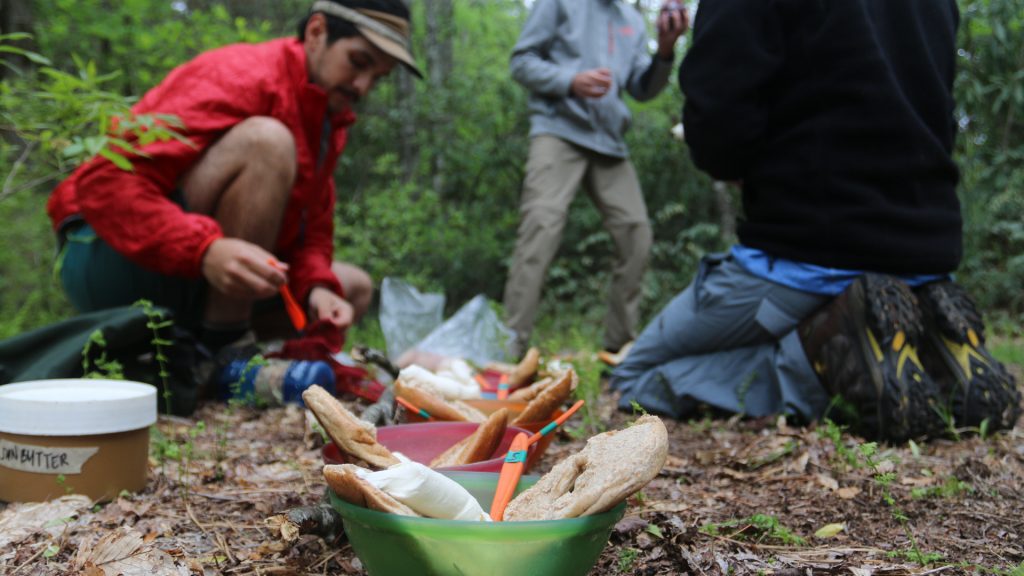
Students line-up lunch for their crew on an Outward Bound backpacking expedition.
2. Order of Operations Is My Lifehack
A backpacking trip engrains within you the importance of routine. Or as my inner algebra teacher likes to say: order of operations! I refer not to our dear friend PEMDAS, but instead to the essence of that grace-giving acronym. That sequence of actions determines accuracy and efficiency while building into your life a list of mini-steps for success. After breakfast on the trail, I put my spoon in the brain of my backpack (“brain” referring to the top pouch that acts as a lid) and my lighter in the chest pocket of my rain jacket so I always know where they are for when I need them again.
Similarly, whenever I get home, I hang my keys and mask on the coat rack before heading to my room so I always know where they are for when I need them again. A mini-step list also streamlines my bike commute. I never forget my bike lights, helmet or bike lock. The accuracy and efficiency I experience using an order of operations in a day-to-day setting is truly unmatched.
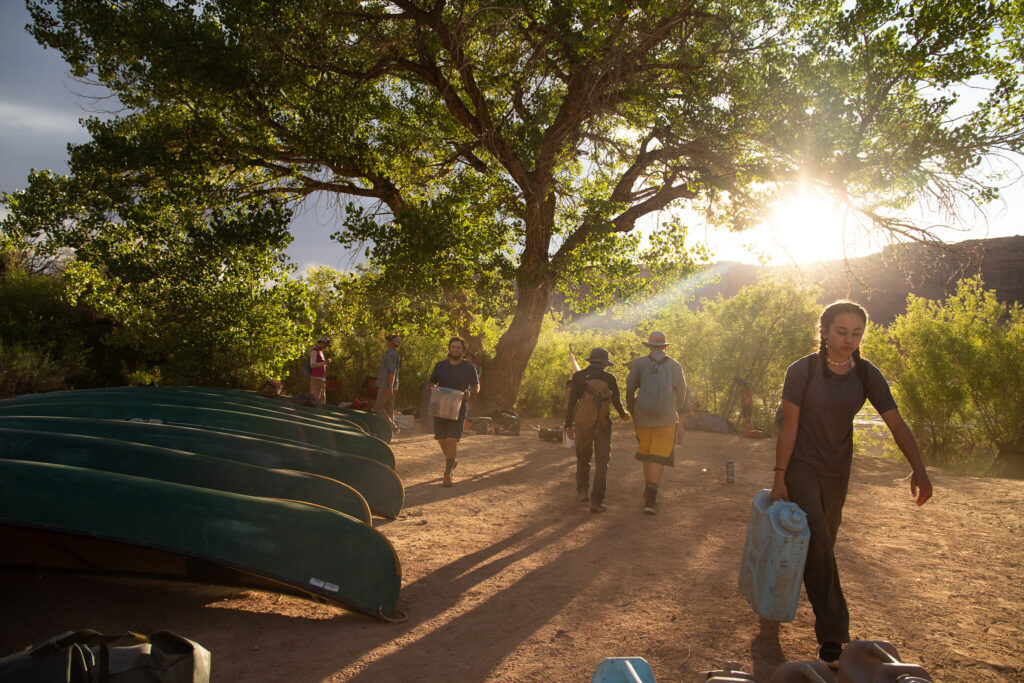
Students on a Southwest expedition practice an order of operations known as E.G.G.S (Essentials, Group, Group, Self) that helps them prioritize tasks and wants when they arrive at camp. Photo by Sophia Macmillan.
3. Sleeping Socks for Happy Feet
I never prioritized foot care until I had half-dollar-sized heel blisters screaming up my nerves on the first day of a month-long backpack expedition. Foot checks are a regular practice on Outward Bound courses to encourage healthy feet and good self-care. On backpacking trips, you quickly learn the importance of sleeping socks: a pair of comfy socks that remain in the bottom of your sleeping bag for guaranteed warmth and dryness every night, no matter how many puddles you backpacked through that day.
In the city where puddles are mostly avoidable, I still like to exchange my day socks for fresh ones before bed every night. Those cold, clammy phalanges need at least eight hours of warm, dry rest to keep you fully on your toes.
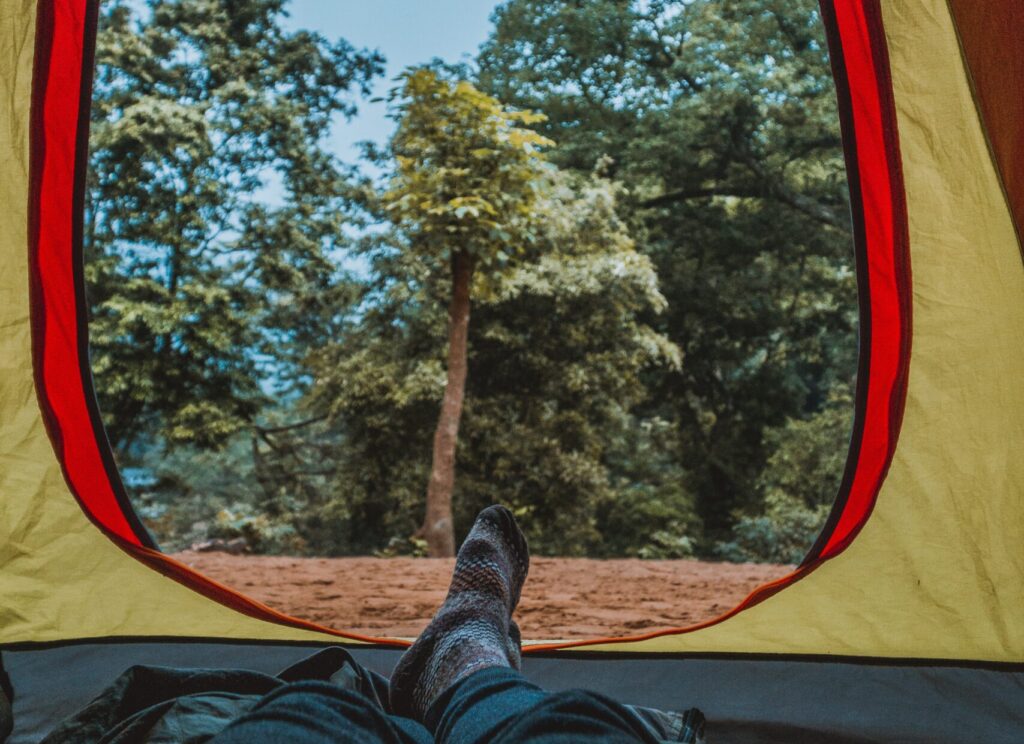
On backpacking trips, you quickly learn the importance of sleeping socks. Photo by Lê Tân.
4. Shorter Packing Lists, Better Go-Bags
The last time I flew on an airplane, before COVID-19, I brought one 26 liter backpack for a three-day trip. No checked bag, no unnecessary fees, no useless items. I wore my chunkiest boots and thick sweater on the airplane and had room in my backpack for two and a half outfits, one toothbrush, three books and my clunky headphones.
After a few backpacking trips, you realize that a three-day trip uses the same amount of essential gear as a thirty-day trip, with a few exceptions. The base weight of your load includes shelter, sleep kit, kitchen kit, hygiene kit, first-aid kit and clothing. Food and water weight vary depending on the length of the trip. Combine a simplified packing list with a knowledge of essential survival gear to create your own go-bag for impending climate chaos or to pack for a trip of any duration.
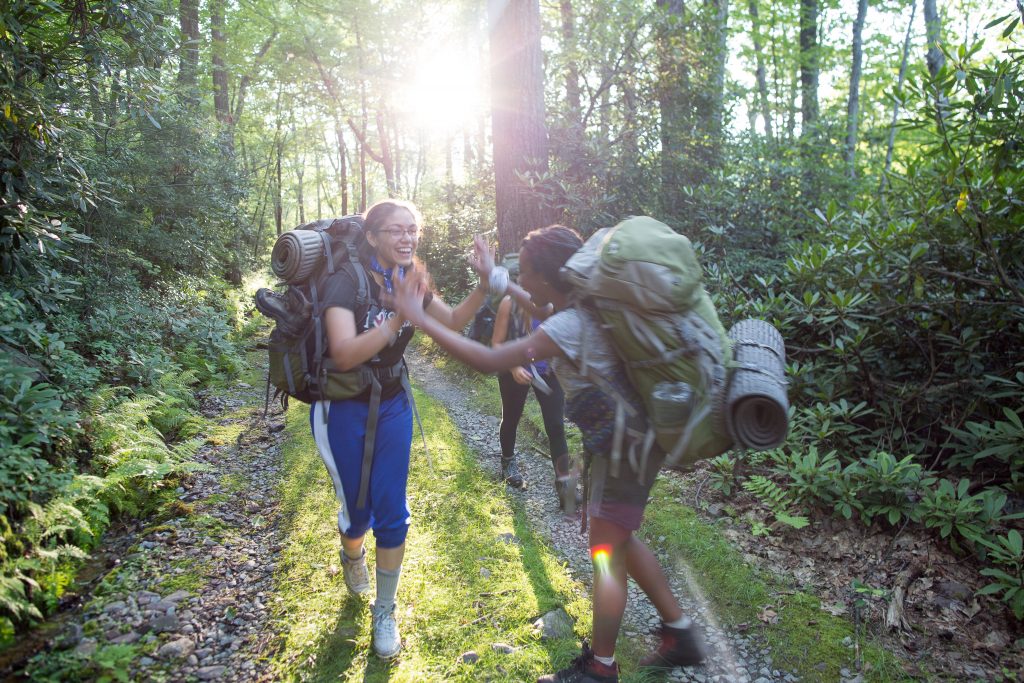
After a few backpacking trips, you realize that a three-day trip uses the same amount of essential gear as a thirty-day trip (with a few exceptions). Photo by Ryan Harris.
5. The Art of Shared Meals
Shared meals are the glue of humanity. They offer a pause to attend to hunger and community in the intimacy of our most basic needs. That platter of muffins soaring around an eleventh-floor work meeting, along with that pot of chili your roommate throws together last-minute, both offer the same human connection as a bowl of burnt quesadillas consumed by greasy fingers on the ground in the middle of the sunsetting desert. The art of sharing good food with good people is in noticing the inimitable and relishing in fullness.
Backpacking changed my life in a gentle way. I feel fortified by hills, empathetic to coldness and curious about how movement can bring people together. Just wait and see what peculiar and profound habits, ideas and skills drift into your own life after a week-long, month-long or semester-long course with Outward Bound!
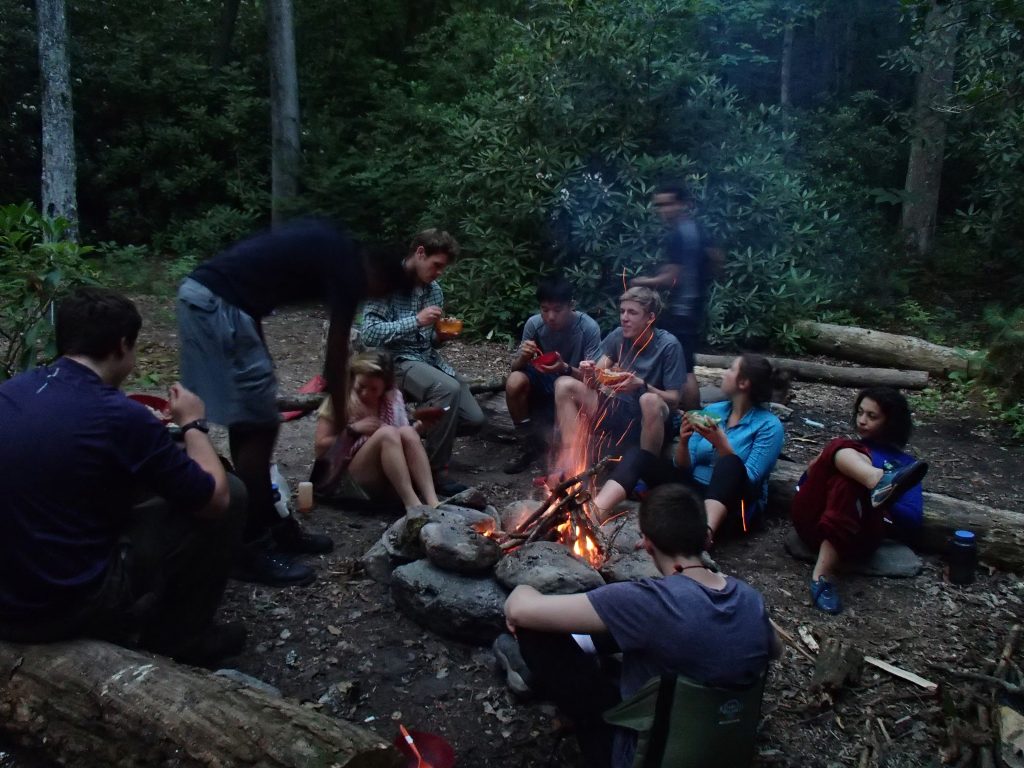
Students sit down to a meal after a day of backpacking.
About the Author
Sabrina Stein is an Assistant Instructor for the Northwest Outward Bound School and a Logistics Coordinator for the Colorado Outward Bound School Southwest Program. She is drawn to the tenacity of life in Southwestern deserts and the magic of rivers everywhere. Sabrina pursues rafting as a means to both, and for the added benefit of strong arms and a flexible mentality. Other hobbies include writing, reading, drinking coffee, getting haircuts, singing extremely loud in the car and source-to-sea rafting trips. She will bake you cookies if you hang out with her long enough.
OTHER POSTS YOU MAY LIKE
Read More
Read More
Read More




